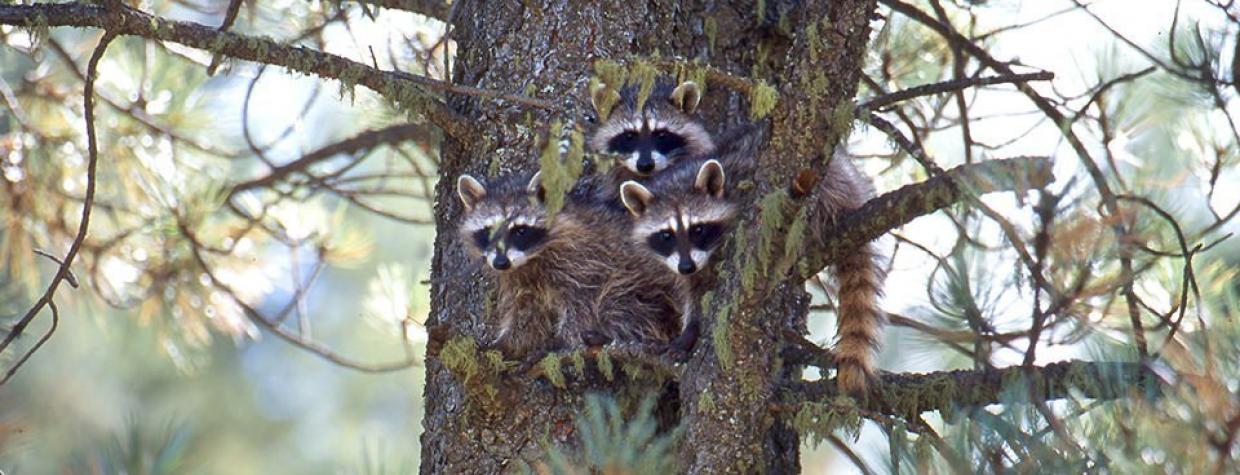Raccoons are intelligent creatures, as anyone who’s had their industrial-strength, securely lidded trash can raided overnight can attest. But there’s more to these creatures than their infuriating ability to tear a garbage bag to shreds — and we don’t only mean the panicked, split-second glance they give you before scurrying into the night when you turn on the porch light at 3 a.m.
Prevalent in most of Arizona’s wooded areas, raccoons can grow as large as 28 inches long — not including their trademark ringed, bushy tails, which usually aren’t longer than 10 inches. Besides what’s left of last night’s family dinner, they eat fruit, nuts, insects, worms and fish, but they’ll occasionally supplement their diet with small birds and mammals. Hunting anything that can run or fly, however, is difficult, because raccoons hit speeds of only 10 to 15 mph over short distances. Despite that, they are adept swimmers, and an adult raccoon can spend several hours in the water.
A highly developed sense of touch, hypersensitive front paws and the aforementioned intelligence make raccoons natural problem-solvers. A 1908 study found that raccoons are able to open complex locks with relative ease, and subsequent studies showed the animals can remember solutions to problems for as long as three years.
So, even if you think your new trash can will deter them, you might consider keeping your garbage in the garage until morning. Just make sure the doors are locked.

